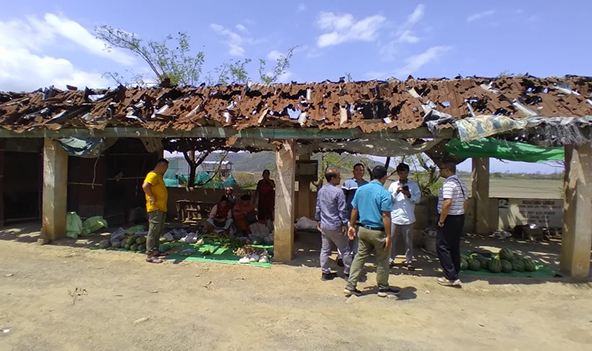ActionAid Association has been at the forefront of emergency response efforts in Manipur, addressing critical needs following severe hailstorms that struck the state. These storms, which occurred on May 5th, 2024, inflicted widespread damage across 16 districts, particularly impacting vulnerable communities in Thoubal, Kakching (valley districts), and Noney (hill district). The disaster resulted in the destruction of houses, leaving many families homeless and disrupting livelihoods dependent on agriculture.
In response to this emergency, ActionAid Association swiftly mobilized resources to provide targeted assistance. Recognizing the urgent needs of the affected populations, ActionAid Association prioritized 375 households for direct cash transfers. Each family received GBP 77.29 (INR 8000), allocated towards essential food items such as rice, lentils, cooking oil, and other necessities. This initiative aimed to alleviate immediate food insecurity and support livelihoods impacted by the loss of crops and livestock.
Furthermore, ActionAid Association distributed shelter and non-food items to 400 of the most vulnerable households. These kits included CGI sheets, tarpaulins, sleeping mats, mosquito nets, and torches, ensuring that families had basic necessities to rebuild their lives and protect themselves from the elements.
To enhance community resilience and disaster preparedness, ActionAid Association conducted 10 awareness sessions focusing on health, protection, and disaster resilience. These sessions equipped community members with essential knowledge and skills to mitigate risks associated with future natural disasters, thereby strengthening local capacity to respond effectively to emergencies.
Throughout these initiatives, ActionAid Association upheld principles of gender equality and community engagement, ensuring that women were actively involved in decision-making processes and leadership roles. This approach not only facilitated effective response and recovery efforts but also empowered local communities to build resilience against future emergencies.

